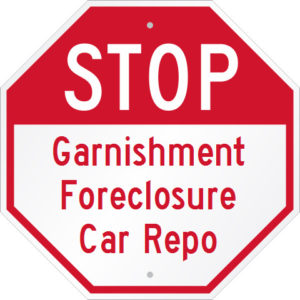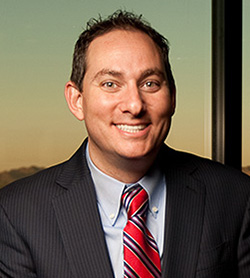Chapter 13 Bankruptcy
 Chapter 13 Bankruptcy is a type of filing that allows debtors to restructure their debts into a repayment plan that lasts 3 to 5 years from the time it is approved. The repayment plan is managed by the Bankruptcy Court. This ensures that all parties to the repayment plan, creditors and debtors, abide by the agreement. This also allows the debtor to create a plan that is easily affordable under their current economic conditions, without being subjected to punishment by their creditors.
Chapter 13 Bankruptcy is a type of filing that allows debtors to restructure their debts into a repayment plan that lasts 3 to 5 years from the time it is approved. The repayment plan is managed by the Bankruptcy Court. This ensures that all parties to the repayment plan, creditors and debtors, abide by the agreement. This also allows the debtor to create a plan that is easily affordable under their current economic conditions, without being subjected to punishment by their creditors.
Chapter 13 Bankruptcy will allow you to keep your home and your car, even if you are currently behind in your payments. Unlike Chapter 7, which forces liquidation of assets, Chapter 13 reorganizes debt into a manageable repayment plan.
Is Chapter 13 Right For Me?
The good news is, you do not have to make this decision alone. A Chapter 13 Bankruptcy Arizona attorney can help you review your current financial situation and determine if this is the right type of filing for your situation.
If you want to know if you may qualify for this type of bankruptcy protection prior to a visit to an attorney, review the scenarios below to see if they are similar to what is taking place in your life.
- You are behind on your mortgage or property taxes but want to keep your home. Chapter 13 will help you reorganize your debts and repay these past due amounts as part of your repayment plan. This will allow you to keep your home.
- You are in danger of having your car repossessed. Your past due car payments can also be incorporated into the repayment plan, effectively bringing you current on your debt and allowing you to keep your car.
- You have a second or third mortgage on your home. If your home has lost considerable value over the last few years, and you currently owe more on your first mortgage than your home is worth, Chapter 13 bankruptcy may be able to eliminate these debts completely.
- You have a monthly income. The court requires that you have guaranteed income to participate in a repayment plan.
- You have debts that cannot be forgiven through Chapter 7 Bankruptcy. Child support, alimony payments, and past due income taxes cannot be eliminated in a Chapter 7 filing. However, they can be incorporated into the repayment plan of a Chapter 13, helping you to eliminate these debts and avoid wage garnishment.
- You have a lot of unsecured debts. Unsecured debts are generally eliminated in Chapter 7 filings. Depending on your income level, these debts will either be eliminated in the Chapter 13 filing, or you will have to repay a small percentage of these debts as part of your repayment plan.
What Is “Means” Testing?
New laws implemented by Congress in 2005 state that a person filing for bankruptcy protection must prove their income. If the income level is below the average in the area, Chapter 7 filings are allowed. If the income level is at or above the average income in the area, the filer must choose Chapter 13. Your attorney will help you distinguish what Chapter you must file.
How Long Does A Chapter 13 Proceeding Take?
A Chapter 13 proceeding usually takes 3 to 5 years to complete. This includes everything from the initial filing to making the last payment to the court for your debts. Actual time will be based on how long you need to repay the debts. During that period, you will need to make monthly payments to the court and attend at least one administrative hearing.
What Are The Fees Associated With This Filing?
When you file Chapter 13 bankruptcy, you can expect to pay the following fees:
- Attorney’s fees. This will cover the administration of the case from your end. Fees will vary based on your case. Your attorney will discuss any fees prior to you agreeing to file for bankruptcy.
- Credit counseling fees. The court will require you to attend a credit counseling course to file bankruptcy. There is a small fee for this service which is usually on a sliding scale.
- Court fees. There will be filing fees and case management fees that are associated with this type of action. Many of these fees will be incorporated into your repayment plan.
 Shawn L. Stone is a Phoenix bankruptcy lawyer licensed to practice in Arizona State and Federal courts, including United States Bankruptcy Court for the District of Arizona. Shawn’s respect for his client’s legal and financial needs, and right to recover from financial duress, are the cornerstones of his law practice. Shawn can help you stop creditor harassment, foreclosure and repossession while maintaining control of your home, motor vehicle and personal belongings.
Shawn L. Stone is a Phoenix bankruptcy lawyer licensed to practice in Arizona State and Federal courts, including United States Bankruptcy Court for the District of Arizona. Shawn’s respect for his client’s legal and financial needs, and right to recover from financial duress, are the cornerstones of his law practice. Shawn can help you stop creditor harassment, foreclosure and repossession while maintaining control of your home, motor vehicle and personal belongings.